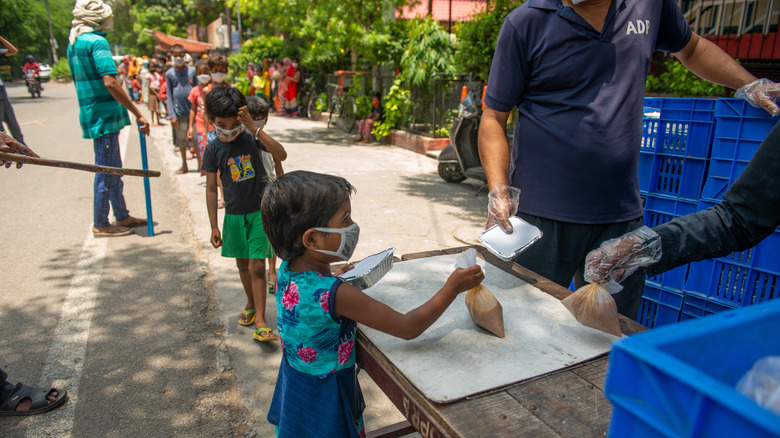Recent Data Confirms What We Suspected About COVID And Food Insecurity
COVID-19 has affected almost every aspect of our lives on a global scale. Waves of infection have kept many recovery efforts from taking hold, and some of the most alarming statistics to come out of the past two years have to do with the rapid increase in food insecurity. Recent studies highlight how countries worldwide are struggling with pandemic fueled challenges and what global aid organizations are doing to combat hunger.
The World Bank explains that pandemic-caused supply chain issues, staffing shortages that raise the cost of transporting foods, inflated retail prices, and lowered incomes are mostly to blame for much of the increase in food insecurity the world is facing, especially in developing nations. Low and middle-income countries rely heavily on imported food, and the diminished supply and ability to transport goods to these countries and communities have caused many to face nutritional deficits and go hungry.
Though food insecurity was an issue even before the pandemic, the number of people facing food insecurity has significantly increased since 2019, with 30% of the global population reporting limited access to a sufficient food supply in 2020. Global Network Against Food Crises shared "an estimated 161 million people experienced 'crisis' levels of acute food insecurity in 2021." Attempts at predicting what is around the corner with the pandemic are mostly futile, but there are some organizations making moves to combat the current food crisis on a national and global level.
The effort to improve pandemic-related food insecurity
Many organizations and governments are implementing programs on a nationwide and global scale to help combat food insecurity exacerbated by the Coronavirus pandemic. The Food and Agriculture Organization of the United Nations suggests that making nutritious foods more affordable and available through legislative policy changes could greatly affect the food insecurity crisis going forward.
The U.S. Department of Agriculture states that the Biden Administration has been fighting food insecurity on a national level by increasing SNAP benefits, funding programs that fight hunger experienced by children affected by school closures, and providing additional support to food banks, among many other tactics. On a global scale, the United Nations is holding summits on food systems in an effort to gain commitments from countries across the world to improve the availability of nutritious foods. The World Food Programme is also working with various governments and organizations to solve logistic problems and get supplies where they need to go. The World Bank has spent $157 billion to fight pandemic-related challenges, including supply chain issues and agricultural development.

